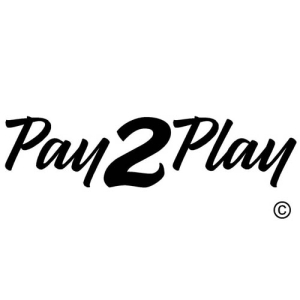As a gamer, nothing tickles my fancy better than having to play online games. Back in the late ’90s, if you wanted to play with friends, you have to go to your nearest computer gaming shop to play the latest LAN games (and that would mean saving a lot of student allowance just to play for the games). Nowadays, LAN games and computer shops are still prominent (from where I came from), though in my case, I play most of the time at home now.
Online games is the norm now. And nowadays there are a LOT of online games to choose from. There are those games that are fantasy-based (which is the most staple for MMORPGs), sci-fi, slice of life or even casual gaming (mostly browser-based games and such).
But like any other games, they come at a price. And there are difference for that, too. For this discussion, I’ll just limit the games for the PC, though there may be titles that are also available for the console (ie PS3, XBox360).
Free-to-Play (F2P)
Free-to-play is an idea by game publishers to offer the game to players for free. That’s right, free. No worrying of expiring game time, the game (once downloaded by the client), isn’t crippled or such. You get the whole shbang and patches and future updates without really paying for anything. So where the heck do these publishers get money from the game if it’s free?
Advertisements and item malls.
Advertisements are common form in many F2P games.
They put their  sponsors’ logo in either loading screens, the HUD of the game interface, and such. Item malls, on the other hand, sell in-game items that are not available by looting or dropped by monsters in any area of the game. These items may either just make your character look cool, or consumable items that help you in grinding your quests so you could level up faster and easier. Transactions could either be by credit card, bank account or through game cards used as in-game currency.
sponsors’ logo in either loading screens, the HUD of the game interface, and such. Item malls, on the other hand, sell in-game items that are not available by looting or dropped by monsters in any area of the game. These items may either just make your character look cool, or consumable items that help you in grinding your quests so you could level up faster and easier. Transactions could either be by credit card, bank account or through game cards used as in-game currency.
 sponsors’ logo in either loading screens, the HUD of the game interface, and such. Item malls, on the other hand, sell in-game items that are not available by looting or dropped by monsters in any area of the game. These items may either just make your character look cool, or consumable items that help you in grinding your quests so you could level up faster and easier. Transactions could either be by credit card, bank account or through game cards used as in-game currency.
sponsors’ logo in either loading screens, the HUD of the game interface, and such. Item malls, on the other hand, sell in-game items that are not available by looting or dropped by monsters in any area of the game. These items may either just make your character look cool, or consumable items that help you in grinding your quests so you could level up faster and easier. Transactions could either be by credit card, bank account or through game cards used as in-game currency.
Sounds good, right? Yeah, too good to be true at times.
I’ve had a bit of experience on F2P games, and I tend to get bored easily with that kind of business model implementation. I mean, can’t the game be played enthusiastically without relying on items that boost you to your character’s 150% potential and blast your way through your quests? Or maybe buy a new set of armor that doesn’t really do anything but makes your avatar cooler by a factor of 10 because the armor costs like your whole month’s salary compared to the other vanity armors available in the item mall?
And don’t get me started with lag. Oh, how many F2P MMORPGs aren’t affected with massive lag in-game? A LOT. And there’s nothing you can do about it; you can’t complain that to the tech support because the reality is there are just too much players logged into the server and just choking the heck out of it. That’s what you get for free.
At times I think those make gamers addicted so much to games and lose reality (and possibly their sanity, but let’s not go there). Not to mention burning a deep hole in your pockets, if it hasn’t already been burnt.
Those things take out the fun in gaming. Well, maybe Team Fortress 2 is that one game that I’m willing to make an exception…..
Freemium
Freemium is another business model that most MMOs are adopting. It is essentially giving away service for free, but other features and perks will cost you a significant amount of money to shell out.
The most used example for this is anti-virus software nowadays. A lot of AV companies are giving away ‘lite’ versions of a full AV program of theirs. The ‘lite’ version works well, but you won’t get any tech support or anything else for that. If you wanted more features, they’ll offer you several, full versions of their product.
There are some MMOs that use this business model. Sure, downloading the game’s free, but you’ll be stuck with the basic configuration, like limited number of character slots, access to areas, etc. What game does have this kind of transaction? This one:
Pay-to-Play
Pay-to-play is simple to understand: You pay to play the game. MMOs that have this model are the ones who have full control of the game, ie. the game developers are also the publishers of their own game. With this, there’re no other gimmicks: no vanity items, no boost items, no need to pay up more for access to other areas. You just subscribe, pay a certain amount on a certain duration (usually on a monthly basis), and that’s about it. Oh, you do have to buy the MMO game first. Nothing’s free in this one.
And the classic example: Blizzard’s cash-cow MMORPG.
Yes, I am totally biased with this MMO game. You just by the core game, you get a free one month game time to get the feel of the game. Need more game time? I hear Amazon sell game time cards, or you could even use your credit card (I dunno about Paypal, though). Of course Just buying the core game limits you to an extent; buy the expansion sets (3 of them available, with 1 more on its way this year), and you get the full experience of playing your character in the world of Azeroth.
Of course, Blizzard sometimes give away perks once in a while. If you’re lucky, they’ll email you and say, “We miss your character in Azeroth! Here’s 7 days of game time for free.” Or, in my case, I’ve been out so long from the game, Blizzard emails me and say, “Someone wants you back in the game! Click the confirmation link, and you get to download all 3 expansion sets, level up one character to 80, and a chance to change your realm (server) or allegiance (Alliance or Horde), all for FREE.”
And it’s no joke. I got all those freebies like they said. Now THAT’S customer service.
Will Pay-to-Play be ever abolished?
I doubt it. With problems such as intense in-game lag that F2P games suffer, F2P will never displace pay-to-play. The quality of service between the two are very, very different, as well as the tech support these guys put into. As for freemium, it’s not a viable business model; that one’s more applicable to non-game software.
I suppose it all boils down to this age old mantra: You get what you pay for.







No comments:
Post a Comment